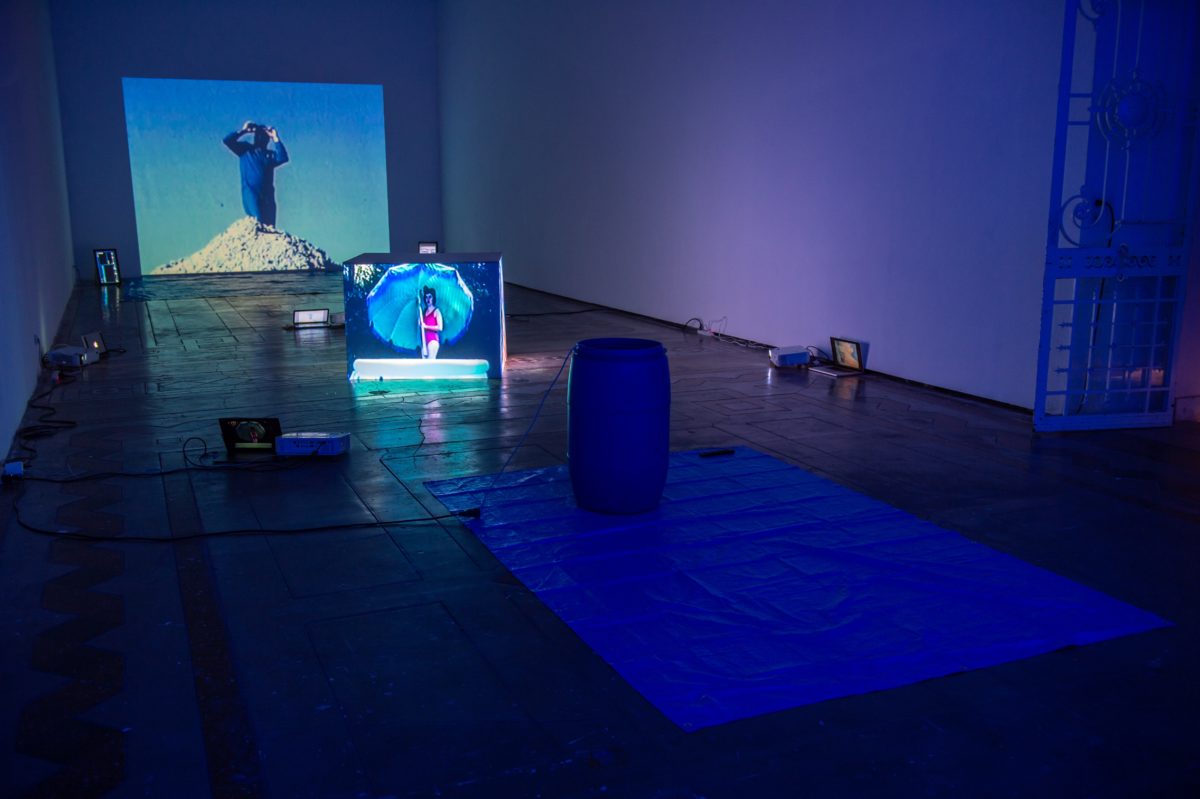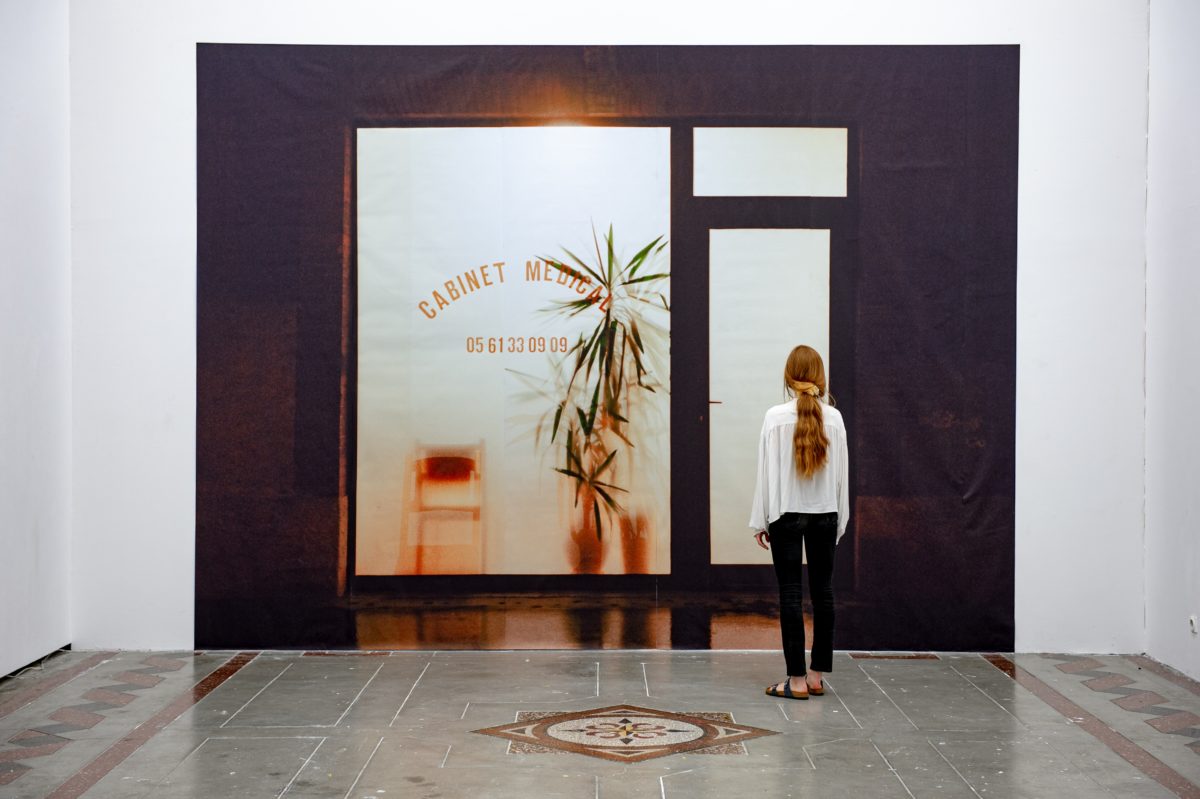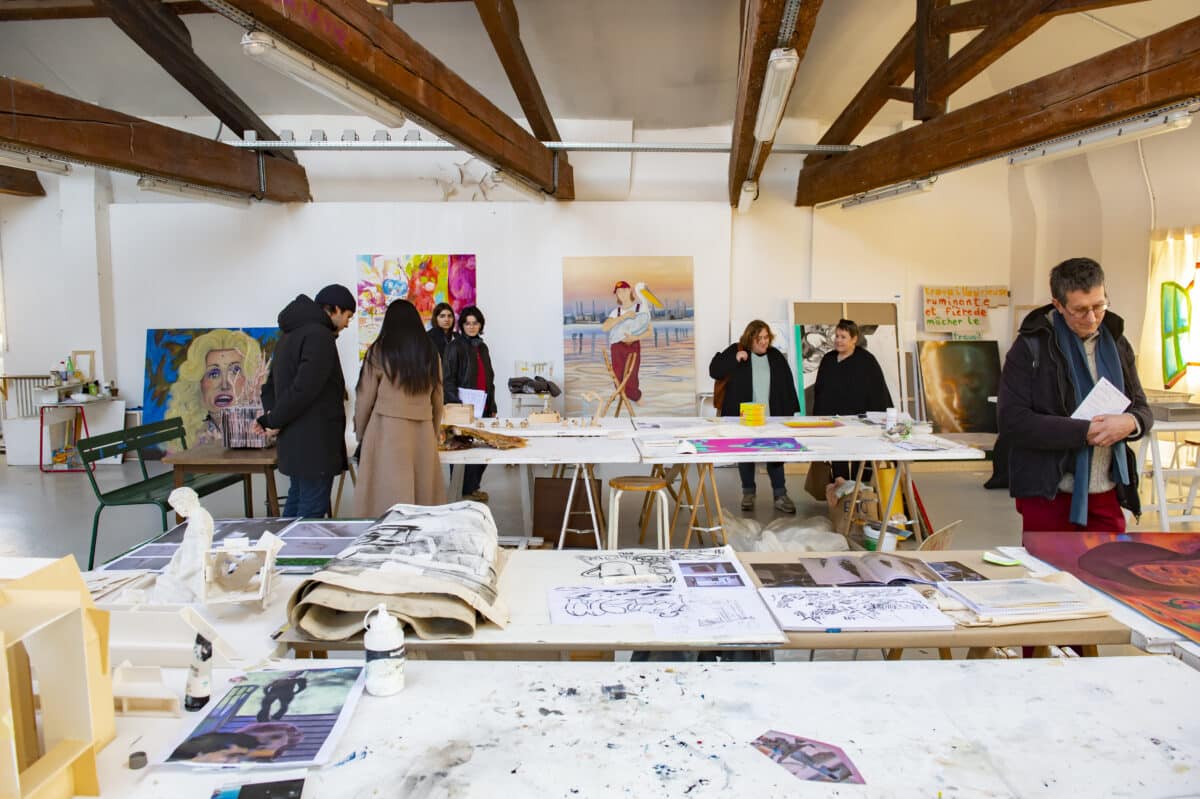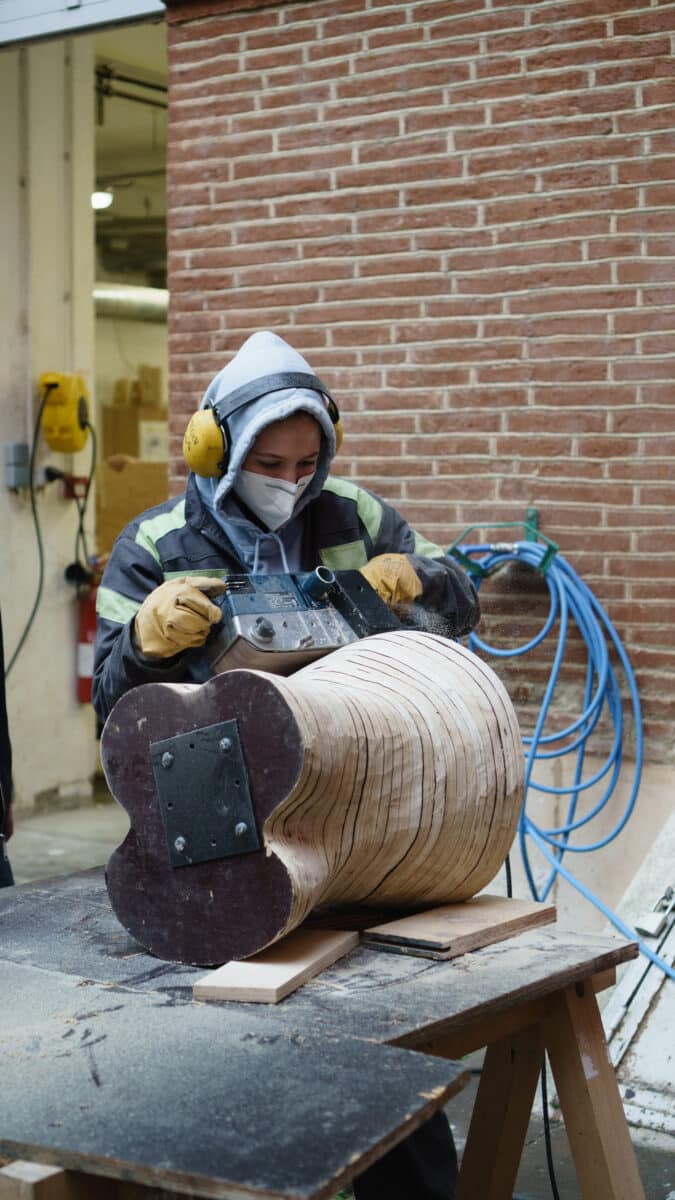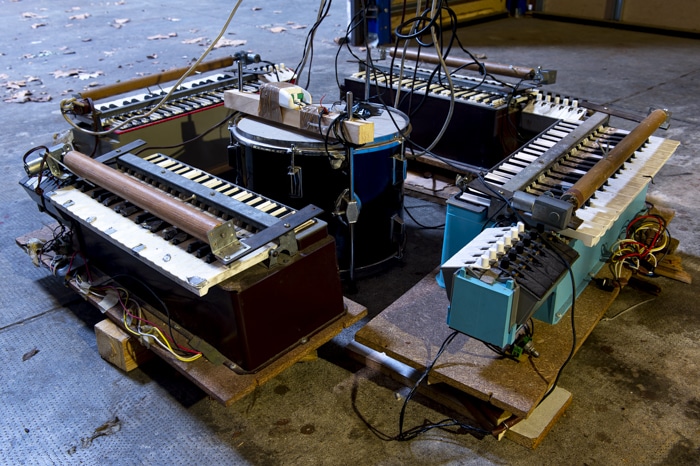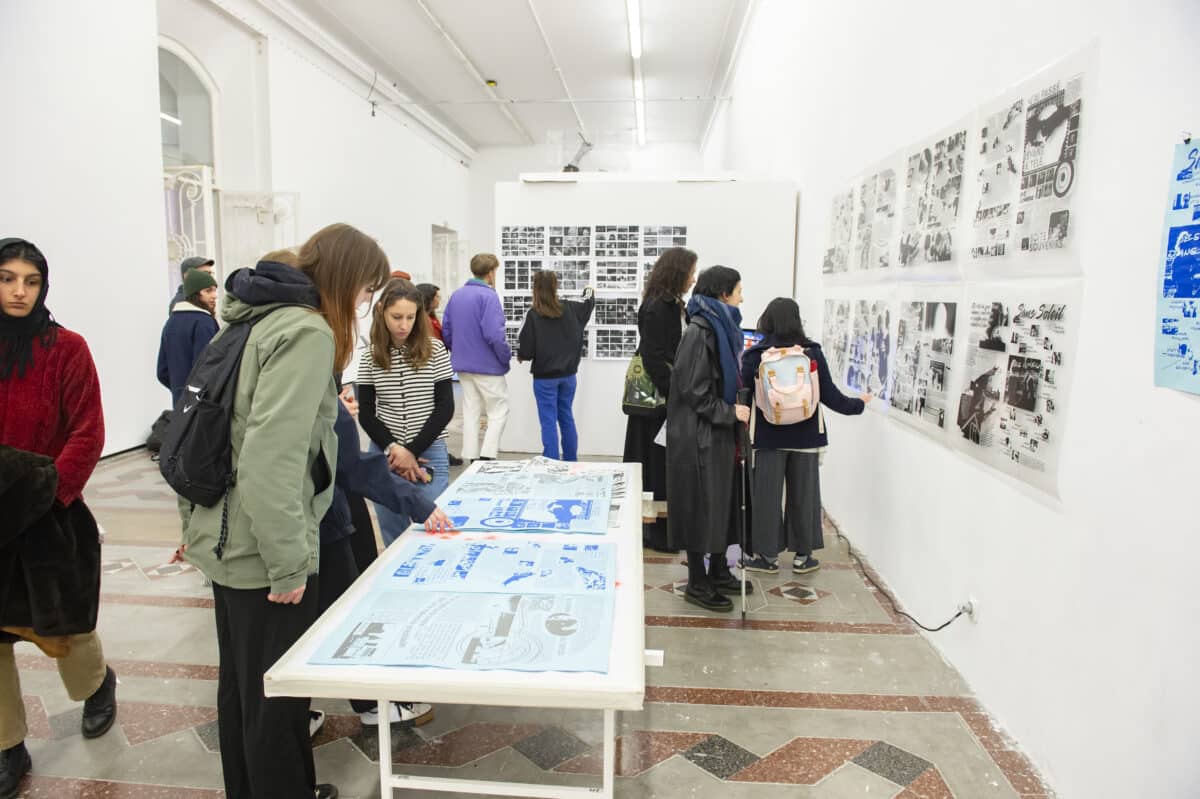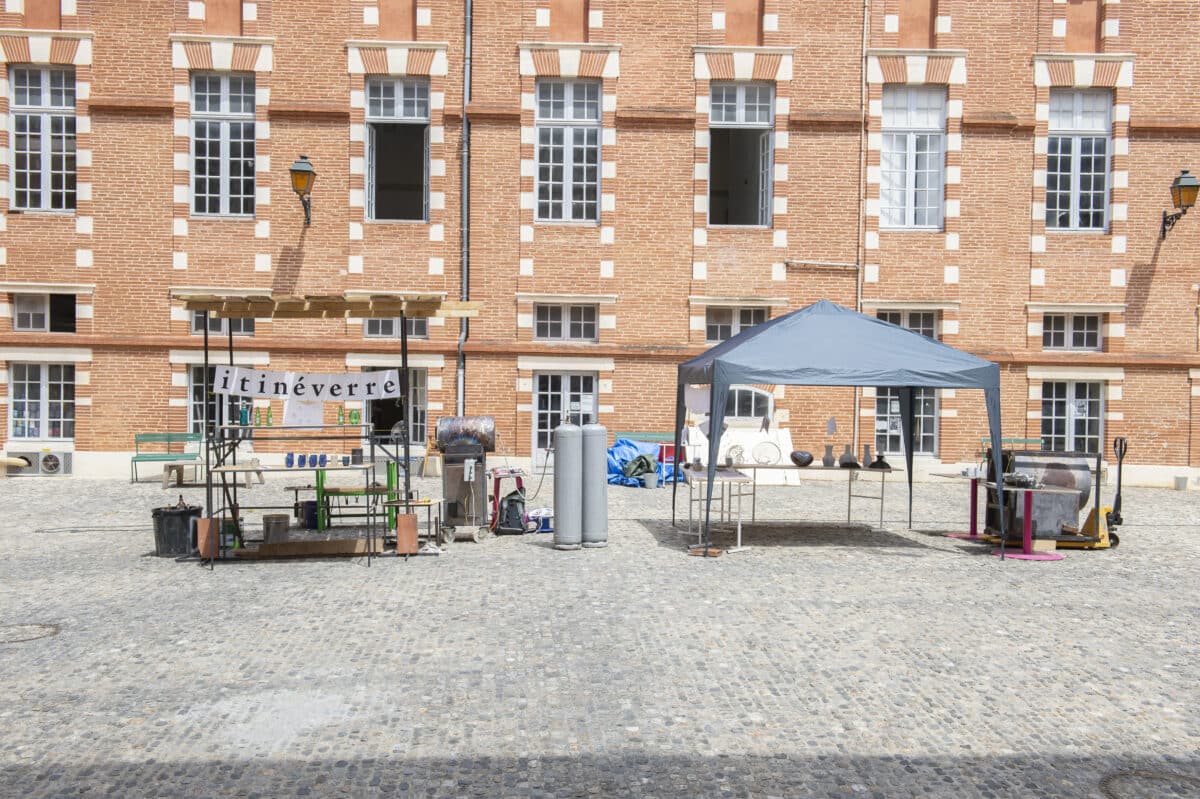Cycle 2 art
The second cycle of the art curriculum is structured around the experimental practice of each student, which is constantly nourished by a constant reflection on its foundations, and whose desire it arouses and sustains.
For this reason, the course is designed to be general and multi-disciplinary, and is not structured around a single medium. Its aim is to build students’ personal projects and the autonomy on which their future artistic practice will be based. The 4th year enables students to reposition and focus their artistic commitments through phases of collective and personal experimentation, as well as the completion of a dissertation that allows them to critically reflect on their work. The 5th year is the time when this reorientation and commitment takes shape in the form of a project leading to the DNSEP. Pedagogical content, seminars, research support and an internship policy are all designed with this in mind.
Orientation, methodology and didactics
The multidisciplinary nature of the work carried out by students and teachers means that the 2nd cycle art option takes place in a vast and open artistic field. Our collegial approach to teaching ensures that this rule is respected. It enables students to dismantle simplistic divisions between theory and practice through a close relationship between visual arts and theory. Their many joint contributions attest to this: dissertation preparation courses, the seminar, Genre 2030, Talkie-Walkie, Paule & Mike, etc. Through its collective events, it also enables active collaboration between students themselves, as well as between students and teachers: the presentation of dissertations, Solo Show, the State of Research seminar. It also helps to decompartmentalize medium-specific work through the eyes of all students and teachers.
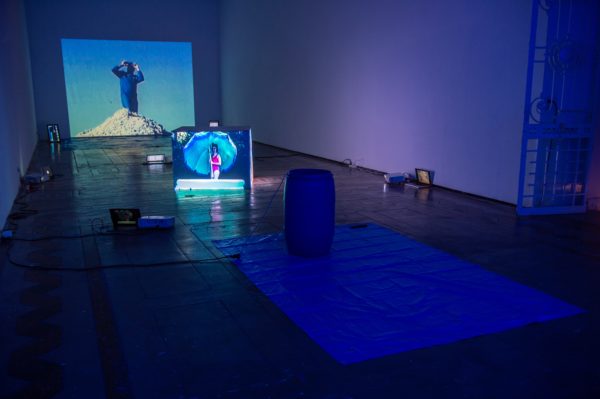
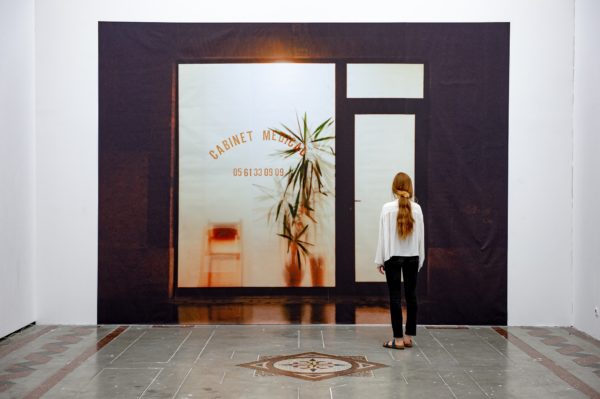
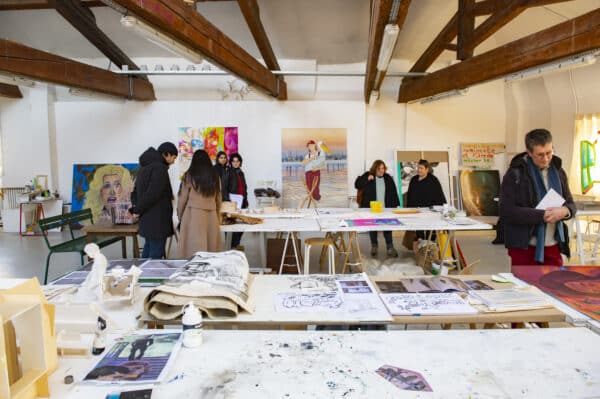
Organisation of studies
The pedagogical organization of Cycle 2 is based on four pillars:
- each student’s workshop work (personal project),
- practical and theoretical courses,
- the thesis,
- Solo Show.
These four components are intimately linked, and their interaction is the key to structuring the student’s personal project. Outside class hours, 2nd cycle art teachers offer students follow-up appointments.
Another important aspect of the four above-mentioned areas is the mobility internship(s).
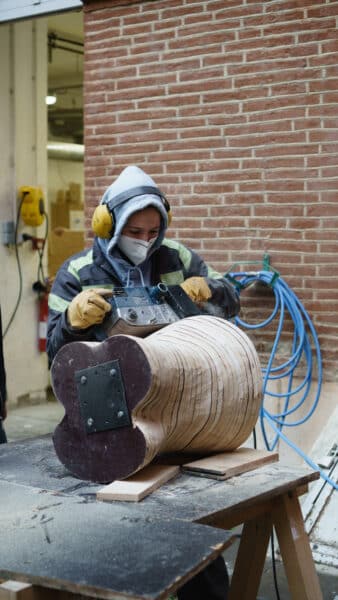
Semesters 7 and 8
Compulsory courses: dissertation, Solo Show, language courses (semesters 7 and 8), courses and workshops, art history courses, State of Research seminar, Preparation for Professional Life course (semesters 9 and 10).
Highly recommended courses: introductory workshops in artistic research, internships, Erasmus exchanges and stays abroad. These can take place in semesters 7 and 8. During these internships, students must maintain regular contact with their teachers.
At the end of the semester, a jury of professors evaluates all work. Assessments are collegial, as are the credits awarded.
At the start of semester 7, students must choose a dissertation tutor to help them prepare their dissertation. The tutor will be chosen from among the Cycle 2 teachers. By the end of semester 8, the dissertation must be fully written and edited. It will be presented at assessments and will be decisive for the student’s progression to year 5.
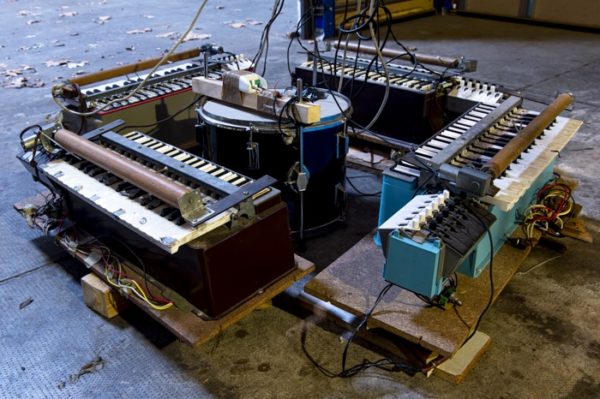
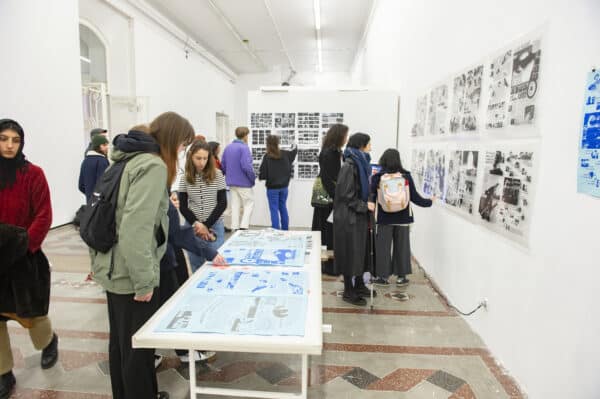
Semesters 9 and 10
Compulsory courses: dissertation presentation, Solo Show, art history courses, courses and workshops, Preparing for Professional Life seminar.
The State of Research seminar and lectures are strongly recommended.
Assessments are also collegial and take place in the same way as for semesters 7 and 8. For the DNSEP, the thesis and project are assessed by an external jury.
At the start of semester 9, students must choose a project director. With this person, they will build a team of teachers who can help them carry out their project. These teachers will be chosen from among Cycle 2 teachers. Project directors share their information, under the responsibility of the teacher in charge of supporting DNSEP students and his/her deputy, so as to keep a record of each student’s overall progress.
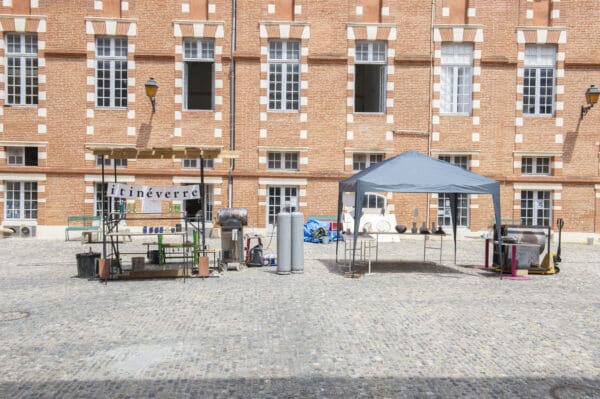
Courses catalog
All information concerning the course programme and timetables can be found on the dedicated Art, design and graphic design courses catalog website (in French).



Staff
Administrative staff
Art, design, and graphic design studies director
David Mozziconacci
david.mozziconacci@isdat.fr
Department secretary
Bettina Mellet and Fabrice Matéo
+33 (0)5 31 47 11 95
+33 (0)5 31 47 11 94
bettina.mellet@isdat.fr
fabrice.mateo@isdat.fr
Educational staff
Lists and biographies of professors and teaching assistants.







